The value of counter after your five calls to the incrementCounter closure will be 5, but the return of each call to incrementCounter will seemingly "lag" one step behind. As Sulthan writes in his answer, this is due to x++ being a post-increment operator: the result of the expression will be returned prior to incrementation
var x = 0
print(x++) // 0
print(x) // 1
Also, as I've written in my comment above, you shouldn't use the ++ and -- operators as they will be deprecated in Swift 2.2 and removed in Swift 3. However, if you're interested in the details of post- vs pre-increment operator, you can find good answers here on SO tagged to other languages, but covering the same subject, e.g.
It's worth mentioning, however, a point that is relevant to Swift > 2.1 however, and that don't really relate to the ++ operator specifically.
When you initiate the closure incrementCounter as
var someOne : Int = 0
let incrementCounter = {
someInt
}
The closure is implictly inferred to be of type () -> Int: a closure taking zero arguments but with a single return of type Int.
let incrementCounter: () -> Int = {
return someInt
}
Hence, what you seemingly "see" in you playground is the unused (non-assigned) return value of the call to incrementCounter closure; i.e., the result of the expression incrementCounter().

Whereas the value of counter is never really printed in the right block of your playground (unless you write a line where the result of that line:s expression is counter).



